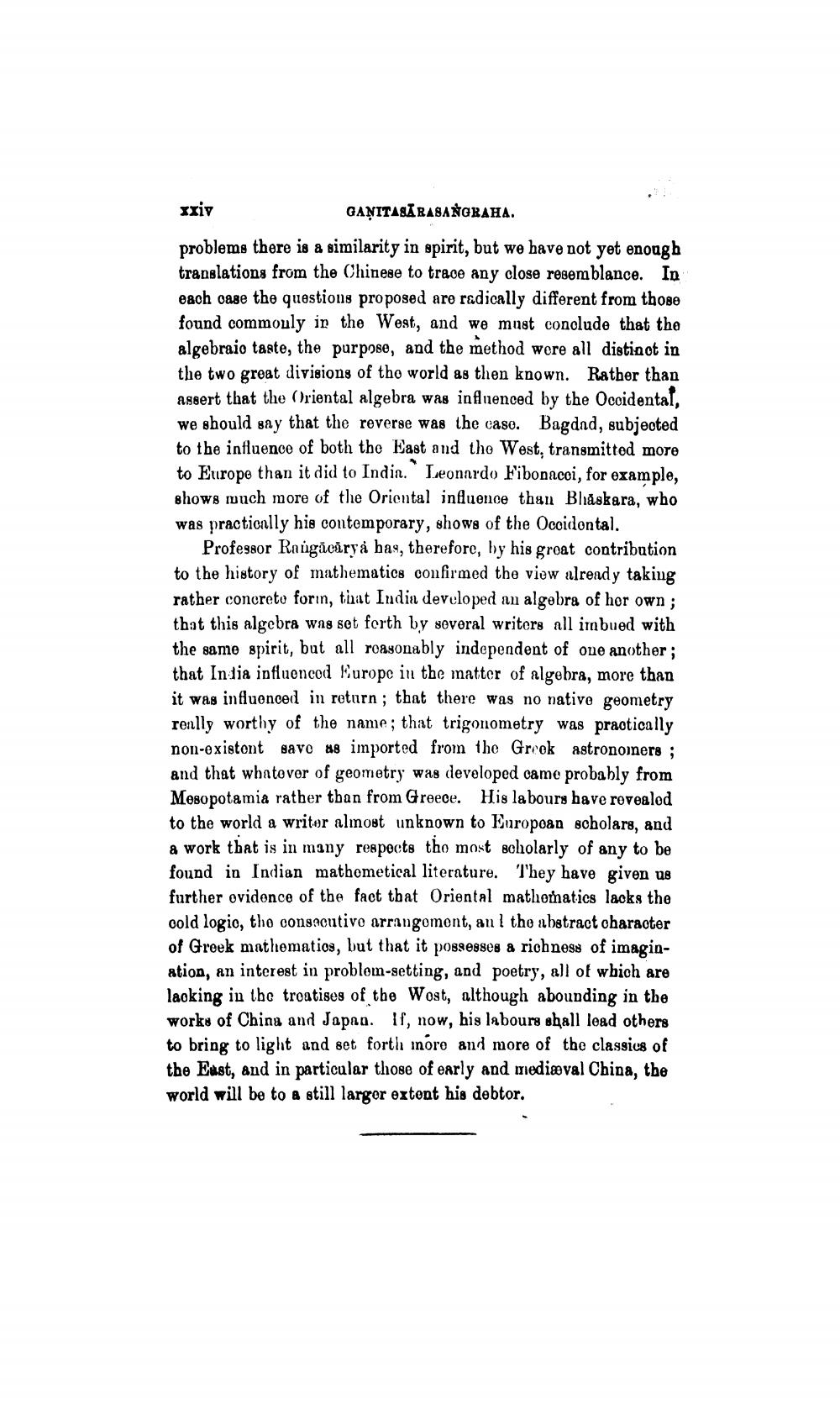________________
Xxiv
GAŅITASĀBASANGRAHA.
problems there is a similarity in spirit, but we have not yet enough translations from the Chinese to trace any close resemblance. In each case the questions proposed are radically different from those found commonly in the West, and we must conclude that the algebraio taste, the purpose, and the method were all distinct in the two great divisions of tho world as then known. Rather than assert that the Oriental algebra was influenced by the Occidental, we should say that the reverse was the case. Bagdad, subjected to the influence of both the East and the West, transmitted more to Europe than it did to Indin.' Leonardo Fibonacci, for example, shows much more of the Oriental influence than Bláskara, who was practionlly his contemporary, shows of the Ocoidontal.
Professor Rangācārya bay, therefore, by his groat contribution to the history of mathematics confirmed the view already taking rather concreto forin, tiat India developed an algebra of her own; that this algebra was set forth by several writers all imbued with the same spirit, but all reasonably independent of one another; that India influencod Europe in the matter of algebra, more than it was influenced in return; that there was no native geometry renlly worthy of the name; that trigonometry was practically non-existent savo us imported from the Greek astronoiners ; and that whatever of geometry was developed came probably from Mesopotamia rather than from Greece. His labours have revealed to the world a writer almost unknown to Europoan scholars, and a work that is in many respocts tho most scholarly of any to be found in Indian mathometical literature. They have given us further ovidence of the fact that Oriental mathomatics lacks the cold logio, the consecutivo arrangement, an l the abstract character of Greek mathematios, but that it possesses a richness of imagination, an interest in problem-setting, and poetry, all of which are lacking in the treatises of the Wost, although abounding in the works of China and Japan. If, now, his labours shall lead others to bring to light and set forth inore and more of the classics of the East, and in particular those of early and medieval China, the world will be to a still larger extent his debtor.




